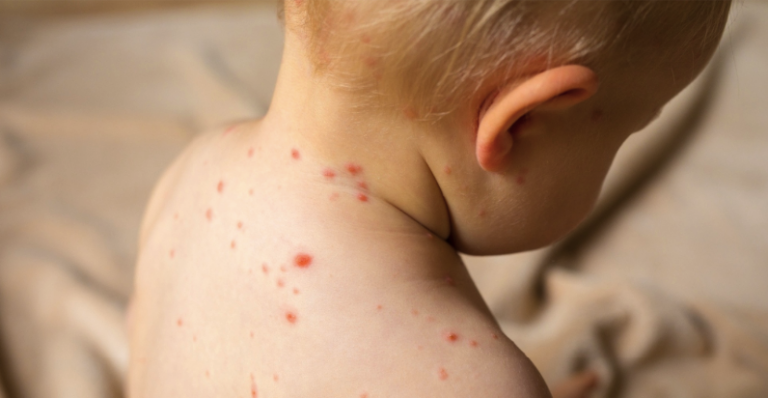Eight measles cases have been reported in Greece, according to a bulletin issued today by the National Public Health Organization (EODY).
The number of cases is considered low by the EODY experts, but they note that the probability of further cases is high.
The resurgence of measles in European Union countries is alarming and is largely attributed to the reduction in vaccination coverage in 2020 – 2022, when more than 1.8 million children missed the opportunity to be vaccinated.
The Covid-19 pandemic significantly impacted immunization resulting in a build-up of under-vaccinated children.
In addition, international travel and the lifting of social distancing measures have increased the risk of cross-border transmission and spread of measles, particularly in communities with low vaccination coverage.
In relation to our country, results of a seroepidemiological study to assess immunity against measles between 2020 and 2021 showed that 89.8% of study participants had antibodies against measles (protection against the disease) either through past illness or vaccination.
It should be noted that the last measles epidemic occurred in Greece in 2017-2018 with more than 3,200 cases and four deaths.
On the occasion of the outbreak of measles cases in European countries, as well as the emergence of measles cases in Greece, the National Vaccination Committee recommends immediate vaccination with the measles-rubella-mumps-mumps-rubella (MMR) vaccine for children, adolescents and adults who have not been vaccinated with the necessary doses.
In particular, according to the vaccination schedule for children and adolescents, two doses of MMR vaccine are recommended, with the second dose being given at 24-36 months of age (although it can be given earlier, provided that 4 weeks have elapsed since the first dose).
Both doses of vaccine should be given after 12 months of age. Children and adolescents who have not been vaccinated with the second dose should be given the second dose as soon as possible.
With regard to adults, it is emphasised that according to the adult vaccination schedule, persons born before 1970 are considered to be immune.
Those born after 1970 should have been vaccinated with two doses of MMR, with at least 4 weeks between doses.
If there is no history of disease or the vaccination history is unknown, the person is considered unvaccinated and two doses of vaccine with a minimum interval of 4 weeks is recommended.
China: 100 car pile-up on a major highway – Watch video
Therefore, checking the health records of children, adolescents and adults and completing the vaccination of those who are under-vaccinated and those at particularly high risk is of utmost importance.
At the same time, the Hellenic Health Organisation has decided to implement the following measures in order of priority:
– Informing the population to check their vaccination coverage and timely completion of the vaccination with two doses, in accordance with the National Vaccination Programme, in case it has not been completed and there is no previous recorded disease.
– Additional information actions in cooperation with the Municipalities, the Municipalities and local medical associations in areas with low vaccination coverage.
-Collaboration of the EODY with the NGO “Health for All” to carry out mass vaccination in Roma camps with the assistance of the Mobile Health Teams (MHPs).
For this purpose the EODY will supply measles-rubella-mumps-mumps vaccines.
– Awareness-raising in refugee and migrant shelters, although the guests are generally vaccinated, due to the mobility of the population and the confusion which favours transmission.
– Awareness-raising of medical staff and assessment of their vaccination coverage.
– Inform travellers to complete measles vaccination before travelling, particularly if they are going to travel to countries with outbreaks, in cooperation with travel agencies.
Ask me anything
Explore related questions





